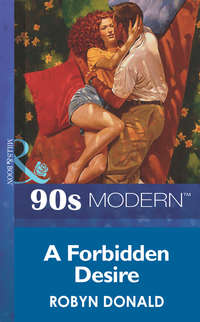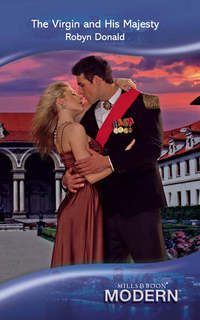
Полная версия
Indiscretions
However, in spite of the official lack of ceremony, someone had decided that these proceedings should begin with a dinner. Although both parties had brought their own interpreters, Mariel, clad in a black dress so circumspect it almost rendered her invisible, presented herself at the small lounge off the reserved dining room to mingle and make herself useful, which she did, stepping in when conversations stuttered and died, acting as a sort of subsidiary hostess, smoothing the diplomatic pathways.
Apart from a middle-aged woman with shrewd, worldly eyes and two extremely elegant women of about Mariel’s age—all New Zealanders—the room was filled with the dark elegance of about twenty men in good-quality evening clothes. Most were comparatively young; only a couple were the same age as her parents would have been had they still been alive.
Deep inside her, a barely discernible foreboding faded to quiescence.
As always she eschewed alcohol; this time she chose club soda and lime. While she was thanking the waiter for making a special trip to get it, she looked up to see Nicholas Leigh talking to one of the younger women, a very attractive person with smoothly coiffed hair the color of newly minted copper. The woman’s fine, patrician features were lit by a composed, gracious smile, but there was nothing composed about the swift glance she sent him from beneath her lashes.
Dumbfounded as a hitherto cloaked emotion flared abruptly and painfully into life, Mariel thought, I’m jealous!
And the vivid sexual awareness that had sprung so unexpectedly to life in the bar a few hours earlier began to assume a much more sinister aspect.
Sharply she turned her head away, glad when her glance fell on a middle-aged Japanese man smiling at a younger New Zealander, who looked to be at a loss. She set her jaw and made her way toward them.
The older man was too sophisticated to reveal any sign of relief when she joined them and introduced herself with a deprecating remark, but the younger man greeted her with a frown. He turned out to be Peter Sanderson, a career diplomat. Short and blocky, his expression pugnaciously intense, he had narrow, suspicious eyes that flicked hastily from person to person as though he was terrified of missing something. However, after the first irritated glare at Mariel, his brows straightened, and he smiled at her with overbold interest.
She didn’t like him, she thought when he asked her where she was from.
“New York? You don’t sound like a native of the Big Apple,” he said, watching her as though he suspected her of lying.
She smiled. “I’m a New Zealander, Mr. Sanderson.”
“But you’re not one of our party,” he said, his brows meeting.
“I’m an interpreter and translater,” she told him, smiling to take away the edge in her voice.
The older man interposed politely, “With an excellent grasp of Japanese.”
Transferring the smile to him, she bowed. “You honor me too much.”
After waiting impatiently for the formalities to be over, Peter Sanderson asked, “How long have you been living in America?”
Trying to hide the wariness in her voice, she told him. He continued asking questions, cloaking them with a veneer of politeness too thin to hide his determination to get answers. His tenacity made Mariel uneasy; she didn’t like the way he watched her, as though assessing her value as a pawn to be played in some game she didn’t understand.
She suspected that his attitude wasn’t personal—he was probably the sort of person who valued people only for thenuse to him—but she had to struggle to maintain her aplomb.
Five minutes later she felt someone behind her and turned, her eyes meeting with a small shock those of Nicholas Leigh. The redhead was still with him, and for a moment a purely feminine challenge crystallized in the woman’s pale gray eyes as they met Mariel’s.
Nicholas made the introductions; the woman was Susan Waterhouse, an aide to the New Zealand minister of trade. Perfectly pleasant and charming, she was nevertheless blanketed by an aura of detachment—neither aloof nor indifferent, yet oddly uninvolved—except when she looked at Nicholas.
In spite of its resemblance to a social occasion, this event was business; Mariel was merely a necessary adjunct, like a computer or a printer. In fact, her profession meant that she should try to be as inconspicuous as possible. Yet she couldn’t repress a spurt of indignation when Susan Water-house’s eyes rested for sizzling seconds on Nicholas’s arrogant, hard-edged countenance.
Distastefully ignoring the scuttling, furtive envy that crawled across her heart, Mariel looked away. The unaccustomed strength of her reaction added to her troubled apprehension. Within a few minutes she made her excuses and left them.
As with most diplomatic affairs the evening was run with slightly soulless efficiency. Exactly enough time had been allocated for two drinks, so just as Mariel finished her second glass, a concerted movement propelled her toward the dining room.
She sat in an alcove to one side of the main table, waiting in case she was needed and trying unsuccessfully to keep her gaze firmly directed away from where Nicholas Leigh sat, charcoal hair wanned with a sheen of bronze by the lights, the poised head held confidently high, features sculpted in angles and planes that were at once fiercely attractive and invulnerable.
Handsome didn’t describe him exactly, she thought, catching him as he smiled at the middle-aged woman beside him. Handsome was too effete, too ordinary. He had the disciplined, inborn grace of a predator—judging by the letter she’d translated that afternoon, a very intelligent, clear-minded predator. His classical good looks, based on coloring and bone structure, were overshadowed by an effortless, supremely well-controlled strength and authority.
Just what was his position in this high-powered group of politicians and diplomats?
He sat at the main table, which meant he had influence.
Surely too much power and influence for a man of his age?
The skin along her cheekbones tingled. Steadfastly she kept her eyes on the two ministers at the center of the table, but as plainly as if she was staring at him she knew that Nicholas Leigh was looking at her. And even from that distance the impact of his elemental magnetism flared through her, heating her skin and churning her stomach and melting the vulnerable base of her backbone.
At last the head of the Japanese mission rose; his interpreter, a slim, bespectacled man, stood to one side. Mariel settled herself to listen intently and professionally.
He was good, but the New Zealand interpreter who followed was not. Technically, she thought objectively, he had the words, but he was missing the nuances. Once she exchanged a glance with the Japanese interpreter, a splitsecond communication in which neither face moved a muscle, but both understood perfectly.
When she looked away her gaze was captured and held by Nicholas Leigh’s half-closed eyes. Carefully she gave him a small, meaningless smile and returned her attention to the speaker, but that hard, searching, far-too-perceptive glance set her heart thudding disconcertingly against her ribs.
At eleven o’clock the dinner broke up to mutual expressions of immense esteem. Mariel waited until everyone had gone before sliding out of her chair. One of the least enjoyable aspects of occasions such as this was watching others eat delicious meals, but because she never knew when she’d be called on, she preferred to eat offstage, so to speak. The sandwich she’d eaten before coming down had been enough to satisfy her, but she could, she thought with anticipation, enjoy a good cup of tea right then.
The door of the dining room closed behind her; she relaxed and had begun to head off for the staff cafeteria when a voice from behind said, “Ms. Browning.”
Not now, she thought, forcing her features into a mask of composure before turning. “Mr. Leigh?”
“I’d like to buy you a drink, if I may.”
This was definitely not a part of her job description. Sedately she responded, “I’m afraid I’m not encouraged to socialize with guests, sir.”
A spark of temper lit his eyes to pure, flaming gold, but was instantly curbed. “I need your professional opinion, and I need it tonight.” When she still hesitated he said levelly, “We can do it like this, or I can insist on a formal meeting.”
He didn’t raise his voice; he didn’t have to. An implacable note in the even tones made itself more than obvious. Involuntarily Mariel looked across the foyer to where Mr. McCabe, the New Zealand trade minister, was standing with a small group of men. As if summoned, he glanced their way, his shrewd eyes going from her face to Nicholas’s. The minister’s gaze returned to her countenance, and he nodded with an air of authority.
“Very well,” she said, surprising herself with her acquiescence, and in case he got the wrong impression, added a fraction of a second too late, “sir.”
Heavy lids hooded his eyes. He said quietly, “Thank you, Ms. Browning.”
CHAPTER TWO
HE TOOK HER to Desmond’s bar, seated her in one of the wing chairs and ordered the mineral water she asked for, deciding on another weak whiskey and soda for himself.
While the waitress went off to get the drinks, he asked unexpectedly, “What’s your first name?”
She bristled, but told him in a level voice.
Black brows climbed. “Where does it come from?”
“It’s a derivative of Mary,” she said. “A family name. My m-mother used to say it came from a princess a long way back in the family tree who was born in what is now Bavaria. Apparently she was a bit of a handful, so her longsuffering family married her off to a Viking. Eventually some of their descendants took the name with them to England.”
“I’m almost certain Mariel is a place in Cuba. I wondered whether it had sentimental associations for your parents,” he said blandly, “but it’s unlikely any Westerners would have been there when you were conceived.”
Her heart slammed to a halt. Before she could stop herself she shot a glance at him, her pulse kicking into overdrive when she met the elongated slivers of pure light that were his eyes.
“Yes,” she said huskily, trying not to swallow.
Broad shoulders lifted in a shrug, but she knew he’d noticed her response. However, his voice was almost indolent, as he said, “You’re the right build and height to be of German descent. Although your coloring looks more Norse.”
Of course he wasn’t so crude as to scrutinize her tall, longlimbed body. Nevertheless, although his dark lashes hid his eyes, she felt exposed to the naked force of his interest, and to her horror her skin pulled tight and an unfamiliar sensation prickled in her breasts. Appalled, she wondered how the mere sound of a man’s—a stranger’s—voice could produce such a violent and unwanted physical response.
“It was,” she returned dismissively, “just a family story, and almost certainly untrue. Families get the weirdest ideas about their antecedents.”
“Ah, all those ancestors who were supposed to be descendants of kings and turn out to have worked as swineherds on the royal estates,” he said, a note of irony coloring the deep voice. “It’s a natural human instinct, I suppose, to put the best gloss on one’s circumstances.”
Once more her eyelids flew up. She met a gaze that was cool and glinting, a face that was a subtle challenge. He must know, she thought dazedly.
No, he couldn’t!
Dry-mouthed, she grabbed for equanimity. “I suppose it is. What did you want to talk to me about, Mr. Leigh?”
He waited until the waitress had departed, then said, “What is wrong with the New Zealand interpreter? And please call me Nicholas, as I fully intend to call you Mariel from now on.”
She drank some mineral water, grateful for its cold fizz and soothing passage down her raw throat. “What made you think there was something wrong?” she countered, unsure of the correct way to deal with this.
“Your face and my own instinct. If I hadn’t been sure of it, that swift glance you exchanged with your Japanese counterpart would have convinced me.”
Dismayed, she said, “You can’t have seen anything in my expression!”
“Don’t worry, I’m sure no one else did. As I said, I happened to be wondering already, and your face was too still. You looked as though you were urging him on, mentally helping him.”
She blinked. This man was dangerously observant, and astute enough to understand what those keen eyes saw. Choosing her words with caution, she said, “There’s nothing wrong with his work. He’s a perfectly competent—”
“At this level,” he interrupted ruthlessly, “competence is not good enough, as you are well aware.”
Of course she was.
“Very well,” she said steadily. “He’s missing nuances.”
“Right. I’ll tell the minister.”
That inconvenient curiosity drove her to ask, “Where do you fit into this?”
His wide, sensuously molded mouth moved in a smile that curled her toes. “I’m a diplomat,” he said, the words almost a taunt.
“Your letter didn’t sound as though—” She stopped and drew in a startled breath. God, how could she have said that? But he didn’t seem like the diplomats she’d known. He stood out, elemental and untamed as a wolf amongst wellfed, domesticated lapdogs. She began again. “I thought you were a businessman.”
His lashes were long and thick and dark, darker even than hers. They drooped for a second, then rose to reveal a cool, unreadable stare. “I have an interest—purely advisory—in a trust that deals with venture capital for ideas, some of which are exported.”
She met the challenge of his glance with a glinting, blue-eyed one of her own. “What will happen to the interpreter? Will he be sacked?”
Unhurriedly he drank some of the whiskey, his expression guarded but assured. In his dinner jacket he was the epitome of elegance, perfectly at home in this luxurious place. “I doubt it very much,” he said with an indifference that came close to being insulting. “He’ll just get extra training. However, that’s not the point. This is an important meeting, and we need the best. You can take his place.”
“No!” The word was out before she was able to stop it.
“Why not?” he asked, that concentrated gaze speculative as he studied her face.
Resisting the compulsion of those gleaming eyes, she parried, “How do you know I’m any better?”
“Just before I came down to dinner I got a fax from Tokyo congratulating me on getting a Japanese secretary,” he said dryly. “That’s good enough for me.”
Any further objection would have been suspicious; it might even give rise to questions. And although eight years ago when she’d done her first job for the hotel the security check had turned up nothing, she wasn’t perfectly safe. She never would be. She knew, none better, that every new person who checked it could turn up a small piece of information that would, if followed through, eventually damn her.
But she said feebly, “I’m hired by the hotel.”
His hard, beautifully chiseled mouth curved into a mirthless smile. “Somebody will contact the hotel management,” he said smoothly.
Neither Liz Jermain, the manager, nor her formidable grandmother would refuse his request. The hotel’s reputation had been built on just such extra services. And that, she told herself sternly, was what she was there for, after all—to make sure that everything went perfectly.
“Well, I was hired as a backup, so it will be all right,” she said, trying not to sound as reluctant as she felt. “I was a bit worried about the other guy. He’s good, but just not quite good enough. I wouldn’t like anything I did to lose him his job.” She stole a sideways glance, wondering whether she had appeased the curiosity her first instinctive refusal must have aroused.
It was impossible to tell. Although he smiled, no warmth reached his eyes, and there was an air of calculation about him that chilled her.
“Nothing you did would lose him his job,” he said enigmatically. “If that happens—and it seems highly unlikely because good Japanese interpreters are fairly thin on the ground in New Zealand—it will be his own inadequacy that does it. So forget about him and think of this as your patriotic duty.”
Did he see the tiny, momentary flicker of pain in her eyes, the sharp, deep inner reaction to his words? “What did Edith Cavell say just before she was shot? ’Patriotism is not enough.’ I prefer to think I owe my loyalty to humanity.”
“Naturally. However, it’s almost impossible to grow up without feeling some sort of emotion for the country one was born in. Especially one as beautiful as New Zealand. How old were you when you left?”
“Eighteen.”
“And where did you go then?”
“To Japan to teach English for a year.”
He gave her another of those assessing glances. “That’s a long way from home and a totally different culture. Were you homesick?”
“Not really,” she said cautiously. “I was lonely, though, for a while.”
“You were an adventurous eighteen-year-old.”
“No more so than most.” She stopped. “You can’t be interested in this.”
His smile had a spark of self-derision in it. “Oh, I’m always interested in a beautiful woman.”
“Then you’re lucky, because there are several in this room who seem more than interested in you,” she said calmly, picking up her bag as she rose to her feet. She’d been conscious of those looks, some surreptitious, more quite open, since she’d been in the bar. For some reason they set her teeth on edge. It must have been this that added the sting to her tone as she went on, “Each one is much more beautiful than I am, I assure you.”
“Sit down.” He didn’t touch her, didn’t even move, but for a moment the breath stopped in her throat. “That was crass,” he said stiffly. “I’m sorry.”
He even looked sincere. Why, then, was she almost certain that he was lying, that his remark had been made intentionally?
It was impossible to imagine him being so insensitive unless he did it deliberately. Behind the spectacular face was a cold, incisive brain, and for some reason he was trying her out.
“Let’s start again,” he said. “What happened after your stay in Japan?”
She could walk away. It would be immensely satisfying, but it would be overreacting, and it would be stupid. Whoever Nicholas Leigh was, he was a guest.
And the resort paid her extremely good money to give the guests what they wanted. If he’d been rude or suggestive, Liz would have been the first to expect her to leave, but he hadn’t.
Silently acquiescing, Mariel resumed her seat and gave herself time to calm down by picking up her drink and sipping it. She was being too sensitive, foolishly so.
“I joined a hotel chain as a management trainee,” she said. “But when they discovered I had a talent for learning languages, they decided I should be an interpreter.”
“Do you do a lot of traveling?” he asked.
Her shoulders moved slightly. “Yes, although not as much now as I used to.”
“Where else have you been?”
“Oh, I had a wonderful six months in Paris honing my French accent, then I spent a couple of years in a Beijing hotel. I’ve been in Malaysia and Russia and Germany, but I’m based in America now.”
“A well-traveled woman,” he observed dryly, his eyes resting on her mouth for a heart-stopping second before flicking up to capture her gaze. “Where do you live?”
“In New York.”
“Why there? I’d have thought Washington was a lot closer, and there’d be more call for your services there surely.”
Lacking the rude intrusion of Peter Sanderson’s earlier catechism, he sounded no more idly interested, yet she was sure he was by far the more dangerous of the two.
“I like New York,” she said defensively. “And I deal mostly with business matters, not the diplomatic service.” Impelled by the need to stop this inquisition, she said, “Where do you live?”
“In London at the moment. Why are you wearing a color that doesn’t suit you?”
Startled, she flashed him an indignant look. “I’m paid to fade into the wallpaper,” she said, then wondered whether perhaps she shouldn’t have admitted her reasons for dressing badly.
Somehow it seemed to give him an advantage she sensed he wouldn’t hesitate to exploit.
“So you wear clothes that make that glorious ivory skin sallow and drain those astonishing teal blue eyes and red-brown hair of color.”
Although his tone was detached, almost indifferent, she detected strong emotions smoldering beneath his elegant, sophisticated exterior. She fought down a keen curiosity, a fierce, consuming awareness that fretted her nerve ends and eroded her hard-won self-sufficiency.
That, of course, was what had caused her first instinctive reaction when he’d suggested she interpret for the New Zealand party. She’d been afraid that if she became more intimately involved with the delegation, she would see too much of him for her peace of mind.
That was what she was still afraid of. The last thing she wanted was to get tangled up with Nicholas Leigh, who was all man and too clever by half.
And a diplomat.
Mutinously she kept silent, relaxing by force of will the hands that gripped her bag.
His glance lingered on the white knuckles as he asked casually, apparently giving up on the previous subject, “So what part of New Zealand did you grow up in?”
“A small town,” she said evenly, trying not to sound evasive, adding, when it was obvious he wasn’t satisfied, “in the King Country.”
“You have family there still?”
“No. My family are all dead.”
“I’m sorry.” Oddly enough he sounded it.
She shrugged. “I’m sorry, too, but it happened a long time ago.”
“So you are entirely alone?” His tone made it a question.
The temptation to invent a lover was almost irresistible, but the hard-won knowledge, gained over the years, that the fewer lies she told the less likely she was to be caught out, stopped such a panicky decision. “Yes,” she said remotely.
He didn’t pursue it. “Do you enjoy your job?”
“Very much. I’ve met some fascinating people, I work in very luxurious surroundings, and I get paid well.”
“You don’t look like a cat,” he said, smiling as she stared at him. It was a subtle smile, complex and enigmatic, and she didn’t know how to deal with it, especially when he went on, “Oh, you move well, but your body is more athletic than sinuous, and the faint hint of intransigence about you is not the smug, slightly taunting feline variety—it appears to be the result of your Viking ancestry.”
“So why a cat?” she asked steadily.
His eyes, his face, his voice, issued a challenge. “Because you sound like one. That’s what a cat asks—comfort, a few novelties to tease the brain, and security. And I doubt if a cat cares who provides for its wants.”
It was an oddly intimate conversation, and he was frighteningly percsptivs. Mariel smiled ironically as she raised her brows. “My looks must be deceiving,” she said lightly. “I don’t think I’m in the least intransigent—”
“I’m glad to hear it,” he interrupted, mocking her.
She’d had enough. Any desire for a cup of tea had long since departed, and she ached with the deep, languid weariness of exhaustion.
“I’m tired, I’m afraid,” she said, smiling, her eyes and face as candid as she could make them. “If you don’t mind, I’ll leave you now. Stay and finish your drink,” she concluded as he rose with automatic courtesy. Hastily she leapt to her feet—-too hastily, for she swayed slightly and must have lost color.
Instantly he was beside her, his hand a hard support against her back. “Are you all right?” he demanded.
No, she was not; her head was spinning, and she wished she could blame lack of food. Biting her lip, she drew away as quickly as she could, her nostrils flaring at the faint, barely discernible scent of him, an insidious, inciting mix of musk and salt.








